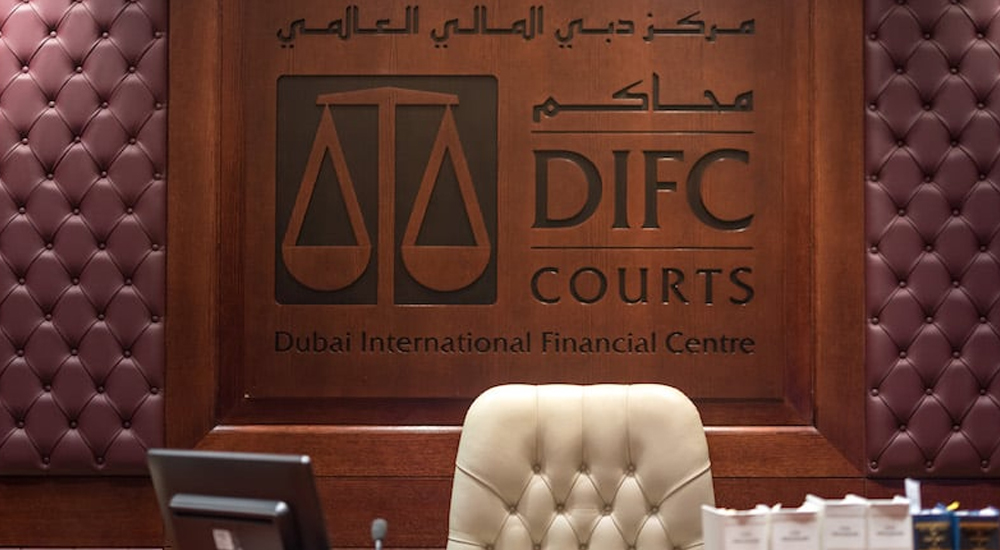DIFC Courts announces specialised rules for Digital Economy Court

The Dubai International Financial Centre Courts announced the launch of a new set of industry-first specialised Rules for its recently formed Digital Economy Court Division.
In addition, leading international judicial expertise has been recruited to oversee and operate the new Court’s cutting-edge digital infrastructure and service capabilities. Under Decree No. 29 of 2022, His Highness Sheikh Mohammed Bin Rashid Al Maktoum, Vice President and Prime Minister of the UAE, has appointed Justice Michael Black of England & Wales, who will oversee the Digital Economy Court Division.
Following the announcement of the dedicated Division in 2021, a global panel of lawyers, led by Tom Montagu-Smith KC and Matthew Watson of 3VB Chambers, and industry experts, were tasked to draft and confirm new specialised Rules, which were also subject to a 30-day public consultation and finalised under the supervision of Justice Michael Black.
Reviewed and approved by His Highness Sheikh Maktoum bin Mohammed bin Rashid Al Maktoum, Deputy Ruler of Dubai, Deputy Prime Minister, Minister of Finance, and President of the DIFC, the new ‘Part 58’ of the DIFC Courts Rules will facilitate the efficient and modern resolution of digital economy disputes, standardising the use of smart forms to provide information through a dynamic, artificial intelligence driven platform. In line with the Courts’ paperless mandate, cases will also be conducted using advanced digital systems to expedite service to parties and enforcement, with a view to reducing the environmental impact of court proceedings.
In 2021, the DIFC Courts established the Digital Economy Court Division to oversee sophisticated national and transnational disputes related to current and emerging technologies across areas ranging from big data, blockchain, AI, fintech, and cloud services, to disputes also involving unmanned aerial vehicles, 3D printing, and robotics.
In line with the Courts’ paperless mandate, cases will also be conducted using advanced digital systems to expedite service to parties and enforcement
DIFC Courts established Digital Economy Court Division to oversee disputes related to big data, blockchain, AI, fintech, cloud services, to disputes involving unmanned aerial vehicles, 3D printing, robotics
His Excellency Justice Omar Al Mheiri, Director, DIFC Courts, said: “The DIFC Courts has continued its trajectory to provide Dubai, the UAE, and the world, with a suite of dispute resolution services that truly break through the barrier of traditional public court services. Businesses that can adapt to embrace the future digital economy will do so with the knowledge that there is a sophisticated yet efficient venue to support and protect the continuity of business projects.
With the digital economy fast emerging as a prime accelerant of global business, these specialised Rules have been engineered to strengthen our mission of building a courts system that not only absorbs current dispute resolution needs but can flex to address and resolve new
emerging disputes. This strategy has been further reinforced by ensuring we blend leading judicial expertise with innovative technological implementations.”
In 2022, the DIFC Courts issued a judgment in the case of (1) Gate Mena DMCC (2) Huobi Mena FZE v (1) Tabarak Investment Capital Limited (2) Christian Thurner which related to one of the first cryptocurrency litigation disputes in the region and one of the few reported cases anywhere in the world which addresses issues such as the safe transfer of cryptocurrency between buyer and seller and the obligations owed by a custodian of cryptocurrency. This case gave rise to various other interesting questions such as the nature of Bitcoins, i.e., whether cryptocurrencies are considered commodities, currencies, properties, or something entirely different, and the appropriate time to value Bitcoins.
From November 26 – 27, the DIFC Courts held a virtual Moot Court, inviting 18 teams of international law students and 25 qualified judges to hold a two-day competition to test-proof the new DEC Rules across a dispute involving cryptocurrency.
Established in 2004, the DIFC Courts is Dubai’s international English language common law judicial system and forms a key part of the legal system of the United Arab Emirates (UAE). It was established with the specific objective to enable the international community in the UAE to have greater confidence in the Emirate’s legal framework and to further strengthen investment and trade relations with Dubai and the UAE.
In 2011, the jurisdiction of the DIFC Courts was extended beyond the financial centre for international businesses, thereby enabling any two parties from any global location to use the DIFC Courts by ‘opting-in’ to this neutral global jurisdiction.
In 2017, the think tank Courts of the Future was launched by the DIFC Courts and the Dubai Future Foundation (DFF) with a mandate to explore diverse legal technology topic areas and to provide research and thought leadership on promoting and encouraging contemporary methods of greater accessibility and efficiency to court users across the globe.
This think tank has enabled the DIFC Courts to streamline its major Court tech projects under the Courts of the Future, pooling talent and resources from global partners and experts across the fields of law, technology, and business, assembled to help courts systems accommodate and leverage emerging technologies.





